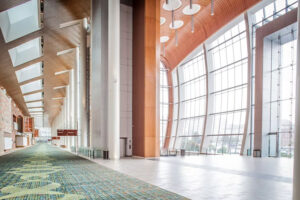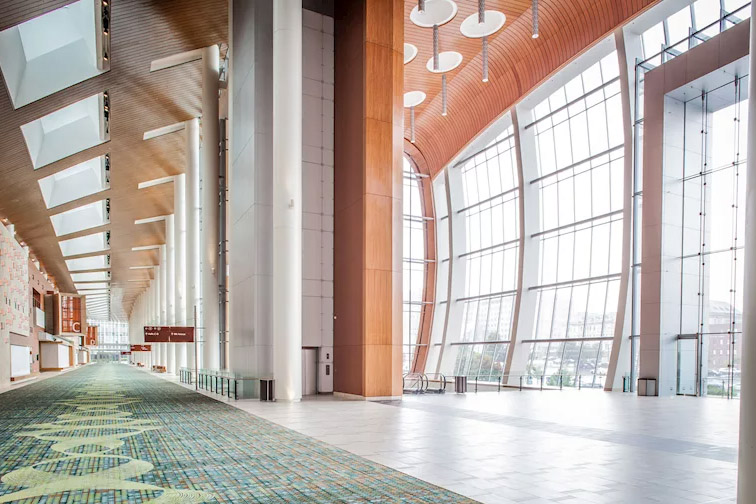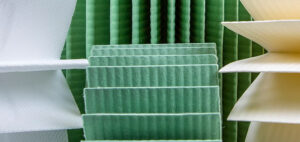V. R. Filter Company Limited | Tel. +66(0)2 992 6565
FAMOUS MUSIC CITY CENTER NASHVILLE, TN VENUE PROVIDES HEALTHIER INDOOR AIR AND REDUCES COSTS SIGNIFICANTLY

HI-FLO ES MERV 13A POCKET AIR FILTERS DELIVER CLEANER INDOOR AIR WHILE LOWERING FILTER-RELATED COSTS 34% AND LABOR HOURS 80%
THE SITUATION
Three years prior, when the event center’s air filtration contract was near its end, Music City Center’s Director of Engineering, set out to ensure he had the best air filter solution for his facility. This decision was pre-COVID and in retrospect, proved to be a very wise course of action. Camfil’s Nashville Branch Manager responded to the RFQ with a proposal to carefully survey the facility and tap into the technical expertise a global air filtration manufacturer like Camfil has to offer in order to determine the optimal solution.
THE ACTION
The survey revealed many of the air handling units were configured as two-stage systems incorporating a low-efficiency pleated prefilter as the first stage and a MERV 13 box-style rigid filter as the final stage. The common two-stage solution represented older technology. Camfil proposed a more advanced solution, the Hi-Flo ES pocket filter specifically engineered to operate without a prefilter. The greater media surface area of Hi-Flo ES minus the traditional prefilter offered significantly lower system pressure drop resulting in noticeably less energy use. In addition, previously the center’s pleated prefilters were changed several times per year based around events and the rigid box filters were changed annually. Reducing the change-out time, the one-year service-life guaranteed Hi-Flo ES single-stage option enabled the maintenance staff to concentrate on other projects.
Testing as a MERV 13A according to ASHRAE 52.2-2017 with Appendix J, Camfil’s Hi-Flo ES maintains MERV 13 particle capture efficiency throughout its service life which offered a critical risk mitigation strategy for the event center when protecting against COVID or other infectious diseases. A filter not tested to MERV 13A could’ve lost efficiency while in-service and allowed particles to pass through the filter into the spaces occupied by facility guests.




